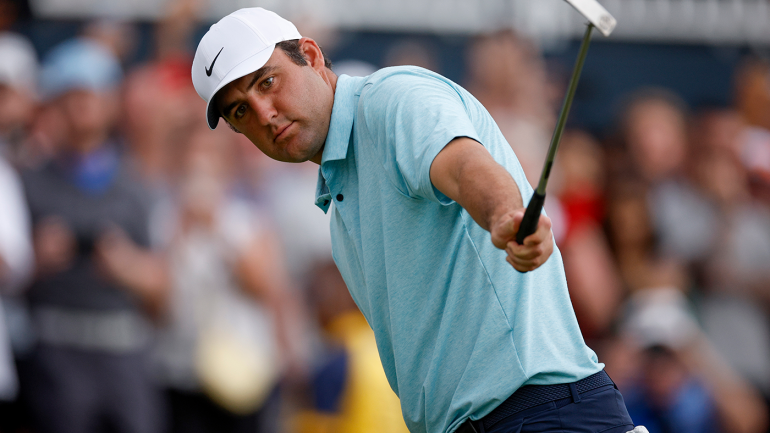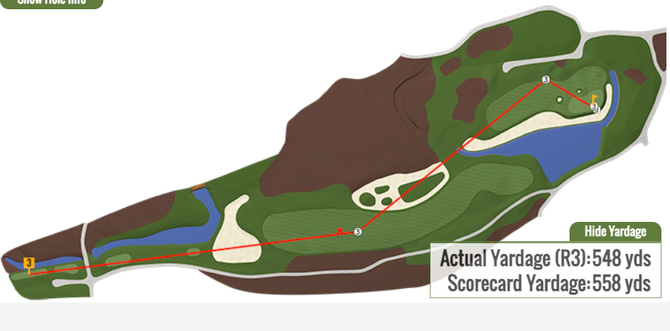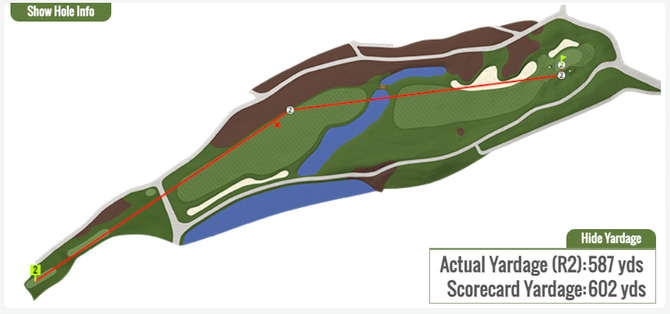
Scottie Scheffler is boring.
That was a common theme this week at TPC Sawgrass where Scheffler won the 2023 Players Championship in Secretariat-like fashion by five strokes over Tyrrell Hatton and seven over Viktor Hovland. That boring style matched an unwillingness to emote, and it led Scheffler to stroll down the stretch to the $4.5 million winner's purse.
That's the story, anyway, and it's told as if, somehow, it's a bad thing.
While it's true that Scheffler eschews the high-wire act of a Jordan Spieth and the "I can hit any shot you can possibly think of" drama of a Justin Thomas, it's also true that boring golf has been the through line of the best players in the history of this sport.
When played correctly at its the highest level, golf is not exactly supposed to be a thrill ride. That some players make it such says more about the fine line those players walk each tournament than it does about their ability to win the biggest events in the world.
"Don't ever aim the ball at trouble" is how Jack Nicklaus contextualized it during the Memorial Tournament last year as part of a longer discussion about course management.
"Don't ever aim the ball at out of bounds. Don't ever aim the ball at a lake. You always aim away from it. And if you have to play back towards it, make sure that you can't hook it enough to get there or make sure you can't fade it enough to get to it."
If you had $1 for every time an announcer said "that's a smart shot" this week while Scheffler played his way to a sixth PGA Tour championship in his first 97 starts, you could have nearly funded the Players Championship purse.
Though Scheffler didn't lead after Round 1 or even Round 2, his weekend onslaught and championship victory still felt inevitable. Perhaps that's because he was worse than field average with his putter in each of the first two rounds and still lingered around the top of the board. It was like when Steph Curry posting 35 at halftime without hitting a 3-pointer.
This was all part of the plan coming into the week: strike balls into oblivion and hope you make enough putts to come out on top. Scheffler pounded greens, and even when he did miss, he did so in spots that could lead to success, like on the par-3 8th hole on Sunday where he chipped in for his first birdie of the day.
He does it again!!
— PGA TOUR (@PGATOUR) March 12, 2023
Scottie Scheffler chips in for birdie and extends his lead to 3 @THEPLAYERSChamp. pic.twitter.com/07XgNQ6wex
"That was just a good example of me playing smart there," said Scheffler. "If you miss it pin high on that hole to either of those pins you're more than likely going to make a bogey. So all we were doing there was just trying to aim for the front edge, and I hit a really good shot and the wind hit it and pushed it a little left.
"If I wasn't playing that smart, I would have been in a really tough position. I was in a position where there wasn't an easy chip, but it was a very gettable up-and-down and just fortunate to see it go in."
From the jump at TPC Sawgrass, Scheffler aimed the ball away from trouble. He played to the fat part of almost every green and missed on the proper side of every fairway. To look through his Shotlink holes is to get a masterclass in how to manage a golf course: away from water on approach shots, drives and everything in between.
"I think it's very challenging," said Scheffler about TPC Sawgrass before the tournament started. "If we were playing a video game, I don't think it would be very challenging. But it's golf, and there's elements, and it's challenging. And you don't always hit it where you are looking, so anytime on this golf course -- basically on any hole, anytime you get out of position here -- it's a very challenging hole. But if you're hitting every shot exactly how you want to, which is pretty much impossible in a round of golf, it's pretty easy."



A statistician who advises golfers described Scheffler's dispersion pattern as tight and described how he moves that dispersion to the proper side more often than most. It's not that Scheffler never hits a bad shot or doesn't miss the spot he's aiming at. It's just that when he does it doesn't cost him more than one stroke.
"It is a physical chess match," said Tiger Woods, who played a lot more boring golf than most assume, of course management at the PGA Tour level. "When you hear me say, 'I missed the golf ball in the correct spots,' that's part of the course management side of it."
This all sounds extremely simple, and in many ways it is simple, but professional golfers -- particularly great ones -- are often so confident in their skills that playing smart, reasonable ... boring shots is actually not as mentally easy as it seems like it should be.
It requires an extraordinary amount of discipline, patience and acceptance.
Scheffler's attitude that he can't control everything—an attitude that, for him, seems to have a religious basis—is probably a very healthy and effective way to approach competitive golf.
— Garrett Morrison (@garrett_TFE) March 11, 2023
The flip side is that plenty of golfer have boring games, but almost none are as gifted at the basics as Scheffler. He's marrying a world class skillset -- Spieth discussed Scheffler's willingness to hit ridiculous short shots, saying, "he's got great hands" -- with perhaps the best course management in the sport.
The trick here -- and this is Scheffler's secret sauce -- is to blend that comical level of self-belief all great players possess with an ability to lay down the pride that comes with attempting to take on every shot and pull at every pin. Scheffler certainly isn't perfect at it, but he's proven himself to be better than most.
"I just stick to my routine," said Scheffler on Saturday after taking a two-stroke lead over Min Woo Lee going into the final round. "That's pretty much it. Just remember to breathe, and breathing is part of my routine, and I've imagined being in those moments and so I know that I'm prepared to be in them. All I can do is just try and hit a got and after that the rest isn't up to me."
Here's how Nicklaus said it: "I thought I was pretty good at what I did, but I didn't trust it that much."
There's not a more apt description for the style of golf Scheffler plays than that.
Spieth and others like him have conditioned those of us watching to believe that "boring" golf is bad and "exciting" golf is good. Maybe so when it comes to entertainment value, but quite the opposite is true if a golfer wants to win world-class events with consistency.
Scheffler's demeanor -- also labeled by some as boring -- also matches his course management; both are built for greatness.
Is it more fun to watch Spieth carry on about the wind and the spin and the way the Earth's axis is affecting his fade? Absolutely. Do I delight in seeing Jon Rahm throw his hands to the heavens at every ball that doesn't drop? You bet.
But Scheffler's physical plan and mental execution match each other in peacefulness (bordering on the boring). And that's sort of the point. He rarely gets too high or too low, a skill he said he's still learning and working on.
Not everyone requires Scheffler's on-course demeanor to succeed -- Spieth has three majors, after all -- but it's difficult to do so consistently if your golf isn't mostly drama-free.
After starting his career 0-for-70, Scheffler has suddenly won six of his last 27 starts. They've all been monsters: two Phoenix Opens, a Masters, a Players, the Match Play and the "worst" win of them all, last year's Arnold Palmer Invitational. It's a run with no end in sight because, like Rahm, Scheffler isn't putting out of his mind (he was field average this week), and he's not really achieving anything outside of his baseline ability.
You might even say his winning, like his golf, has become repetitive and monotonous.
In some ways, this week confirmed the theme about Scheffler. It's a fair narrative, even if the implication is incorrect.
If you're looking for somebody to make you feel something on the course, Scheffler is not your guy.
But if you're looking for somebody to execute a blueprint that leads to winning everything in sight, Scheffler is nearly in a league of his own.
So, it's fair to call Scottie Scheffler "boring," as long as you recognize that boring golf, by design, is brilliant.





















